Six books I enjoyed - Summer/Autumn 2022
- Published
- 2023-07-10
- Tagged
- 2020
- 2021
- 2022 Pt. 1
- 2022 Pt. 2
- 2023 Pt. 1
- 2023 Pt. 2
I’m back with a mid-year review of some books I read and enjoyed! Once again, in the interest of brevity and as an excuse to publish actual content to this blog, I’ve decided to run this year on a six-monthly shift.
The last six months I feel like I’ve really got to read some good books, perhaps inspired by words of wisdom from Adam Sternbergh. In particular, I set myself the “challenge”1 of reading through all of Ursula Le Guin’s Hainish Cycle, the mainstay of her science fiction work. I really enjoyed the Earthsea series when I read it however many years back2, and I read The Dispossessed and The Left Hand of Darkness at various points, but the whole backdrop of those books always felt like there was another movie going on just out of frame, involving the interstellar politics of the Ekumen. At the time of writing I’m still forging through these books, but the words which readily come to mind here - “challenge”, “forge” - are really counter to the effortless feel of immersing yourself in a decades-long conversation about society and humanity.
With so many books to choose from, I’m going to counteract my last entry and give you six books I enjoyed over the past six months.
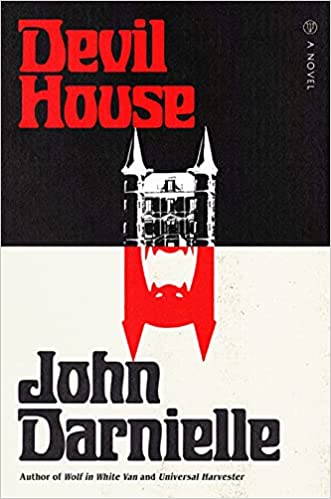
Devil House - John Darnielle. A true crime writer settles in to a little out-of-the-way town in central California to research a murder from decades ago that the town would honestly rather move on from. Through the course of the book we see the author uncovering the story he’s going to put to paper, while also wrestling with how his work impacts the real people who still live in these communities.
I read Darnielle’s Wolf in White Van many years ago and greatly enjoyed not just the general vibe of the book, but also the roleplaying-adjacent topic. Devil House has the same things going for it, and I enjoyed it for the same reasons. I think maybe the story has a bit more meat on it than Wolf in White Van, but I think I’ll have to sit with Devil House a bit, and perhaps have a re-read, before passing judgement on the books’ merits relative to each other.
I also read Universal Harvester alongside this, and while the vibes are great, the plot doesn’t feel like it holds together quite as well as the other two.
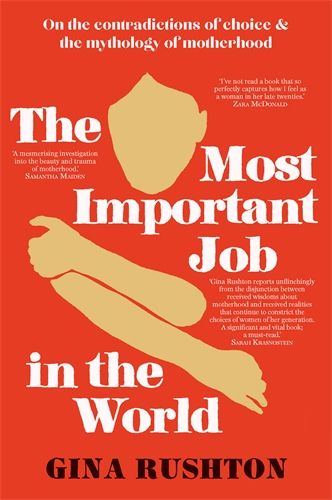
The Most Important Job in the World - Gina Rushton. The tsundoku next to my bed is higher than ever, and this book was in there, if only briefly. I bought it in physical form after a short review on Dense Discovery, as it felt appropriate given the kid and my weird relationship to family and parenthood. I thought it was going to focus on the history of gender and parenting, but instead got treated to a searing, soul-enamel-scouring3 introspection by the author on what it means to be a parent in a world of gender and racial inequality and climate change.
This is a hard book to read as a prospective or current parent, but the message is - I think? - hopeful. I feel I came out of this book changed, and that’s what art’s all about right?

Parable of the Sower - Octava Butler. A post-apocalyptic book about a black teenager with a vision of a new religion in a decaying America. This kept on coming up on folks’ recommended lists, so I finally got around to reading it. It’s wild to think that this was published in the early nineties: it feels incredibly modern not just in its depiction of a near-future conservative America in a state of capitalism-induced collapse, but in what the authorial camera focusses on. It also reminds me of Avery Alder’s Dream Askew: “Imagine that the collapse of civilization didn’t happen everywhere at the same time. Instead, it’s happening in waves. Every day, more people fall out of the society intact.”
Despite this - despite the grand vision, the detailed world-building, etc. - something about the book didn’t quite gel with me. I still enjoyed it and found it very engaging, but perhaps I’ve had my fill of precocious young protagonists.
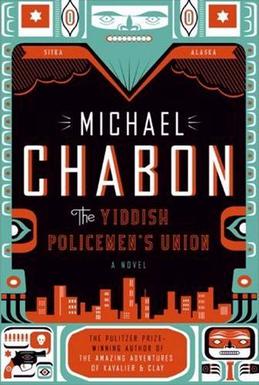
The Yiddish Policeman’s Union - Michael Chabon. An alternate-history Jewish-diaspora film noir murder mystery. There’s a lot of words in that last sentence and it doesn’t even get into the actual plot of the book, except that it’s exactly what you’d expect.
This was another book I saw on a list and decided to read on a whim. I wasn’t quite prepared for it, but I felt it worked wonderfully. In saying that, I feel like it’s the kind of book where a bunch of content and perhaps subtext went right over my head. Perhaps that just means I need to re-read it in a year.
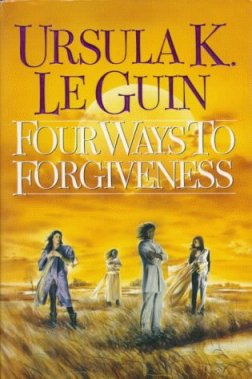
Four Ways to Forgivenness - Ursula Le Guin. I had to pick one book from my recent reading project, didn’t I? Four Ways to Forgivenness (later published as Five Ways… with an additional novella on the end) is a book about a twin planetary system that’s dealing with its slave-owning past and present. It’s written as a series of short stories and novellas, all of which interlink gently and none of which really hold your hand too much regarding the surrounding context of events. That means you naturally start off a bit confused and spend the first story working out who’s who and what it all means (or I did, anyway).
By telling the story across multiple points of view and points in time, the book is able to talk about a world’s changing relationship to race and gender in a really in-depth way. I normally prefer novels to short stories - partly because the length of a novel allows you to weave a bit more of a complex story with a bit more depth and time to it, but the binding common world, and the recurrance of characters and situations between these stories, lets this book do that across multiple stories. It really makes this something worth coming back to.
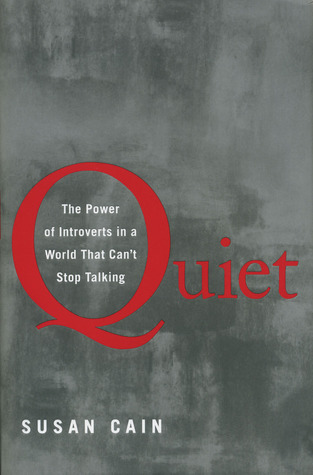
Quiet - Susan Cain. Or, to give this book its somewhat wordy full title: Quiet: The power of introverts in a world that can’t stop talking. This is a book about introversion: why it happens, what it means, why it can suck, why it’s great. The book is unapologetically in the corner of introverts, with the author being a self-acknowledged introvert who has had to “perform” the extrovert in previous jobs.
As a pretty obvious introvert who’s grown good at wearing the extrovert mask over the past decade or two, this book resonated pretty strongly with me. If that also describes you, you may enjoy this book just for that, even if you don’t learn anything new from it.
-
Challenge is a strong word I think here, but you get what I mean. ↩
-
I first read A Wizard of Earthsea as a teenager - my parents gave it to me as a birthday or Christmas present. And I hated it! I don’t know whether I refused to engage in its core conversation about death, or whether the whole thing just went straight over my head. Whatever the case, I remember bouncing off of it hard. It took me a decade to go back and find out not only that it was a great book, but that there were more in the series. ↩
-
You know that feeling when you’ve just read or watched or listened to something that danced a bit too close to the eternal truth that everything is finite and no one knows what you’re doing for your own comfort? With me it gives me that feeling you also get when you eat too much rhubarb and your teeth feel like they’ve had the very top-most layer of their enamel gently removed - you end up feeling a little raw and inclined to start answering innocent questions like “how are you?” truthfully. That’s what it means to scour the enamel of your soul. ↩
